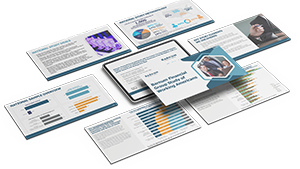
Retirement planning can be daunting, especially as you near retirement age. Questions, like how you’ll manage this major life transition, how you’ll spend your time and money, and if you’ll continue working, can be overwhelming. While you’ve probably been thinking about and planning for retirement for a while now – maybe you’ve enrolled in your company-sponsored 401(k), begun thinking about your post-career budget, or looked into Social Security benefits – there’s much more to consider as you close in on retirement.
Beginning the process sooner than later will help you better focus your efforts and prepare for that post-career life you’ve dreamt about. Here are our top 5 factors for you to think about as you near retirement.
Living Expenses
According to a 2020 survey by the Employee Benefit Research Institute, only 38% of retirees report being “very confident” that they would be able to meet their basic expenses in retirement. To find that confidence and set yourself up for retirement, it might be a good idea to think about how your current living expenses, such as commuting to work and healthcare costs, may change.
Additionally, try to estimate your monthly expense budget during the first few years after you retire, remembering important expenses, like groceries, emergencies, travel, and health care. It’ll be a good idea to reassess this budget as retirement nears. Keeping a close eye on your spending in the years prior can help you more accurately anticipate your retirement budget.
Sources of Income
Considering your sources of income and how they’ll support you in retirement can also be helpful in estimating your budget. You can find an estimate of how much you’ll receive from Social Security by making an account at ssa.gov. You can also check out our recent article on Social Security retirement benefits here.
You should also regularly review any accounts you’ve set aside for retirement, including employer-sponsored plans, IRAs, and traditional investment accounts. Try estimating how much these accounts will provide you on a monthly basis. If you’re married, don’t forget to include your spouse’s retirement accounts in this calculation. And if your employer provides a traditional pension plan, you can contact the plan administrator to find out the estimated monthly benefit amount.
If you have rental income or plan to continue working after retirement, include these in your calculations. Alternative sources of income can help you postpone dipping into your retirement accounts, always a plus.
Debt and Savings
Once you have an idea of what your retirement expenses and income may look like, it’s time to focus on your debt. Ideally, you want to pay off your debt – including your mortgage – before you retire. This will put you in a position to adjust your monthly expenses in retirement if necessary. No one wants to be bogged down by a mortgage, loan, or credit-card balance in retirement, so focusing on your debt pre-retirement is definitely a must.
Bolstering your savings in the final years leading up to retirement is also essential. As you get closer to retiring, you’re likely earning the highest salary of your career, so strive to contribute the maximum amounts possible to your employer-sponsored retirement savings plan or IRAs. Keep in mind that if you’re 50 or older, you can take advantage of catch-up contributions, which enable you to contribute an additional $6,500 to your 401(k) plan and an extra $1,000 to your IRA in 2021.
Taxes
As you think about your various resources for retirement income, consider the tax impact on your strategy. For example, you may want to withdraw money from your taxable accounts first to allow your employer-sponsored plans and IRAs more time to potentially benefit from tax-deferred growth. Generally, however, you’re required to begin taking minimum distributions from tax-deferred accounts once you reach age 72, whether or not you need the money (Roth IRAs are an exception).
If you decide to work in retirement while receiving Social Security, understand that income you earn may result in taxable benefits. IRS Publication 915 offers a worksheet to help you determine whether any portion of your Social Security benefit is taxable. Additionally, if you’re planning on leaving a financial legacy, you’ll want to consider how estate and income taxes for your heirs figure into your overall decisions.
Health Care
According to a 2020 report from the Employee Benefit Research Institute, the average 65-year-old married couple retiring in 2020 would have needed $270,000 in savings to have a 90% chance of meeting their insurance premiums and out-of-pocket health-care costs in retirement. Pay close attention to health care as you plan for retirement.
As you age, the portion of your budget consumed by health-related costs, including medical and dental, will increase. While Original Medicare (Parts A and B) will cover a portion of your costs, you’ll still have deductibles, copayments, and coinsurance. Unless you’re prepared to pay for these out of pocket, you may want to purchase a supplemental Medigap insurance policy, sold by private health insurers and standardized and regulated by both state and federal laws. These plans offer different levels of coverage and may cover many of your out-of-pocket costs.
Another option is Medicare Advantage (also known as Medicare Part C), which is a bundled plan that includes Parts A and B, usually Part D prescription coverage, and possibly additional benefits that Original Medicare doesn’t cover. For more information, you can visit medicare.gov.
It’s also a good idea to consider the possibility that you or your spouse may need long-term care. Because these costs vary depending on where you live, many people often consider buying long-term care insurance. Policy premiums may be tax deductible, based on a number of different factors. If you have a family history of debilitating illness, have substantial assets you’d like to protect, or want to leave assets to heirs, you should consider a long-term care policy.
Ease the Transition
As you prepare for the transition to retirement, you should consider these important factors to ensure you’re financially set. While it can be overwhelming, using the years ahead to plan accordingly will make the process easier and help you achieve the retirement you deserve.




